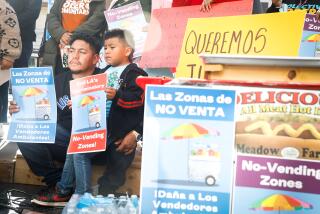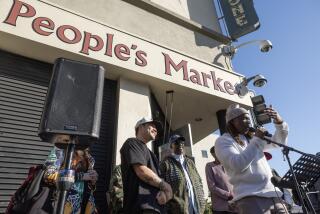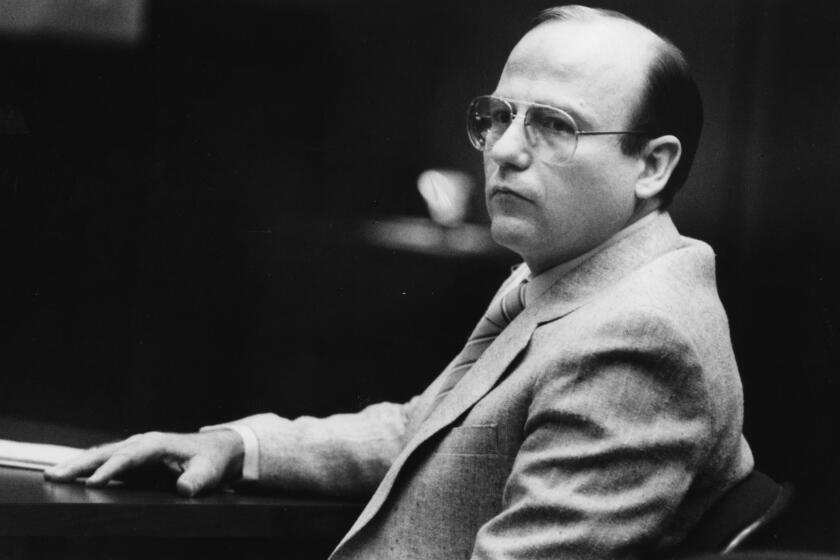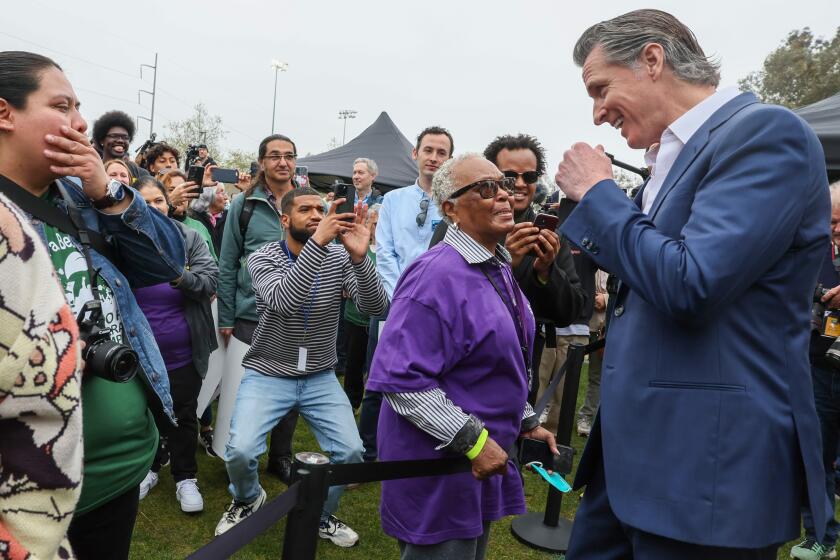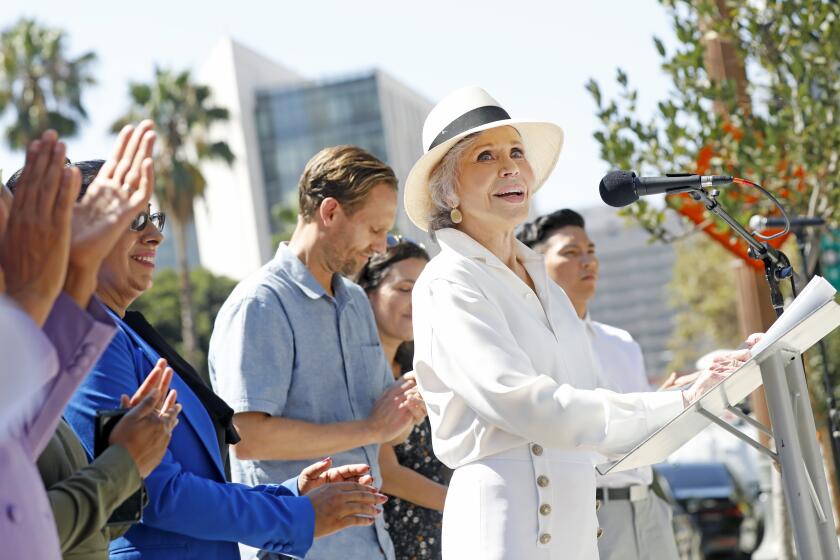Rebuilding of Liquor Outlet OKd in Riot Area : South-Central: Planners postpone vote on a second store that was cited by residents as a community problem. The larger controversy over alcohol sales is left unresolved.
The Los Angeles City Planning Commission granted its first approval Thursday of plans for one riot-damaged market in South-Central Los Angeles to rebuild and sell liquor, but postponed a vote on a second store cited by residents as a community problem until the environmental effects of its alcohol sales can be studied.
The actions left unresolved the controversy over liquor sales that has emerged since the riots, pitting community groups--who want the city to use the unrest as an opportunity to reduce the number of liquor outlets--against merchants who say preventing their return would be victimizing them again.
The commission approved Don S. Jong’s plans to rebuild Don’s Market at 3600 S. Normandie Ave., imposing only minor conditions, such as the removal of graffiti and trash.
But, heeding concerns of community residents who testified that operators of Trojan Liquor Market at 3000 S. Vermont Ave. had allowed public drinking and loitering in the past, the commission agreed to consider whether those conditions can be used to justify tighter controls.
The city is limited in its ability to regulate the rebuilding of liquor stores by state laws that give the state’s Alcoholic Beverage Control Department the sole authority to control liquor sales, and by city codes that allow a destroyed business to rebuild.
“We are trying to strike a balance” between the law and community concerns, said commission President Theodore Stein Jr. after the hearing. “If you turned us loose to how we really feel about this, we’d probably deny them all.”
The hearing came five months after the riots destroyed 224 of the 723 liquor outlets in South-Central Los Angeles. So far, 13 have submitted rebuilding plans to the commission.
The panel’s decision to allow Jong to rebuild was criticized by Councilman Mark Ridley-Thomas, who represents the area, and called the vote “an institutionalized form of oppression. . . . The overconcentration of liquor outlets in my community drives down the quality of life.”
Sylvia Castillo, director of a community coalition, Rebuild L.A. Without Liquor Stores, said “the idea of going back to business as usual--just rebuilding liquor stores--is a horrifying thing.”
But Castillo’s group expressed optimism that the California Environmental Quality Act--frequently used by homeowners in more affluent areas to fight unpopular construction projects--can be used to allow the city greater control over the rebuilding.
Dale Goldsmith, a Century City attorney working pro bono for the anti-liquor store forces, proposed Thursday that the commission consider whether loitering, public drunkenness and other problems resulting from alcohol sales warrant environmental review.
“Using environmental arguments is a common approach for people opposing development projects,” Goldsmith said. “The coalition is using the same strategy. The difference is in the specifics of the environmental problems.
“If I were in Westwood, I would say the city had dropped the ball on analyzing the specifics of traffic and air quality. Here, I say the city hasn’t analyzed the nuisance activities such as loitering.”
However, Deputy City Atty. Susan Pfann said using these arguments for environmental analysis is unusual.
But the commission agreed to consider the environmental issues and postponed a vote on the Trojan Liquor Market until November.
“I understand the political concerns that have been raised,” said Myung Yung Kwan, who has been operating Trojan for three years. “But as a man, I feel victimized.”
His landlord, Fred Wolf, called the commission’s actions “a delaying tactic” and said the city was using a double standard.
“They call press conferences for Vons to build a big market, come in and sell liquor, but the little man who owned a business, he can’t come back,” Wolf said.
But Stein said the decision to explore greater review for one case and not the other was based on the public testimony, police reports and citations for the two markets.
More to Read
Start your day right
Sign up for Essential California for news, features and recommendations from the L.A. Times and beyond in your inbox six days a week.
You may occasionally receive promotional content from the Los Angeles Times.

